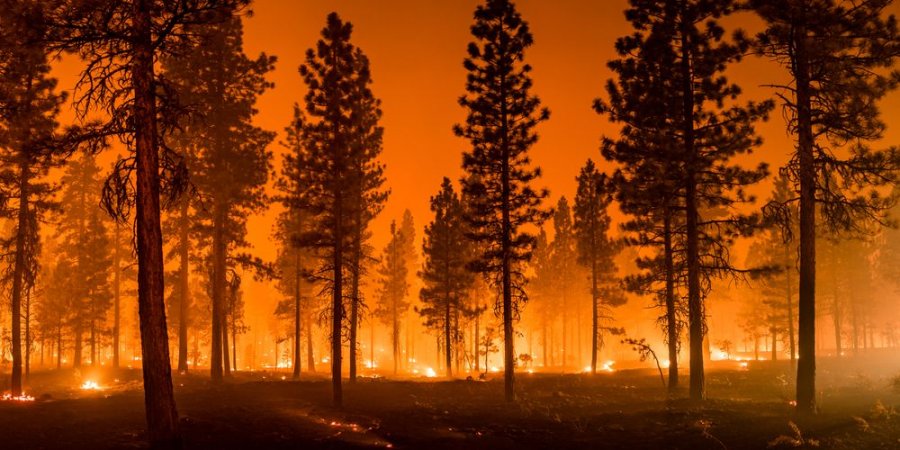Over the past 20 years, the frequency and scale of extreme forest fires have doubled, and by the end of the century, their number on the planet will increase by 50%. But the world is not ready for the increasing severity of forest fires caused by climate change.
Euractiv writes about such disappointing forecasts, citing a study by scientists published this month.
Wildfires have already engulfed Turkey, Greece, Canada, and the United States earlier this season as waves of extreme heat raise temperatures to scorching highs.
Although additional resources have been allocated to improve firefighting in recent years, experts say this has not been matched by planning and preparation for such disasters.
"We're still actually catching up," Stefan Doerr, director of the Center for Forest Fire Research at the British Swansea University, stated bitterly.
Predicting how severe any fire will be or where and when it will start can be difficult because many factors, including local weather conditions, affect the calculations. But in general, wildfires are getting bigger and more intense, said Doerr, who co-authored a recent paper examining the frequency and intensity of such extreme events.
A separate study published in June found that the frequency and scale of extreme wildfires has doubled over the past 20 years. According to the United Nations Environment Program's 2022 report, the number of extreme forest fires worldwide will increase by 50% by the end of the century.
Doerr says that humanity has yet to face this reality.
"We are clearly not well enough prepared for the situation we are facing now," he said.
Climate change is a major driver, although other factors, such as land use and the location of residential developments, play a large role in increasing the number and extent of fires.
The EU has a strong resource-sharing model, and even countries outside the bloc along the Mediterranean Sea benefit from firefighting equipment or financial assistance when needed. This was told by San Miguel, an expert of the Joint Research Center of the European Commission. But as wildfires grow more intense, firefighting simply won't cut it.
San Miguel said they are getting feedback from civil defense colleagues who say they cannot put out fires because the water evaporates before it reaches the ground.
"Prevention is something we need to work on more," he added.
In April, EcoPolitic reported that in 2023, more than half a million hectares of forest in the EU was destroyed by fires.





